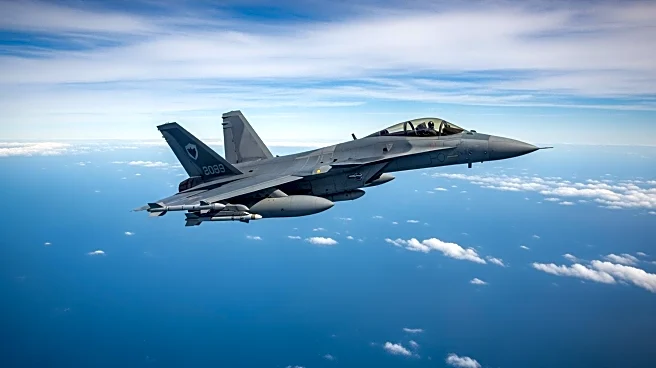What's Happening?
Poland's military reported that two of its fighter jets intercepted a Russian Il-20 reconnaissance aircraft over the Baltic Sea. The aircraft was flying without a transponder and had not filed a flight plan, which is a common tactic used to avoid detection.
This incident is part of a series of similar airspace violations by Russian military aircraft in the region, raising concerns among NATO member states. The Polish military emphasized the professionalism and readiness of its pilots in handling the situation effectively. This interception is part of a broader pattern of Russian military activity near NATO airspace, which has been increasing in frequency.
Why It's Important?
The interception of the Russian aircraft highlights ongoing tensions between NATO and Russia, particularly in the Baltic region. These airspace violations are seen as provocative actions by Russia to test NATO's response capabilities. The Baltic Sea is strategically significant, bordered by several NATO member states, and any military activity in this area is closely monitored. The increased frequency of such incidents underscores the need for NATO to maintain a high level of readiness and coordination among its member states. This situation also reflects broader geopolitical tensions and the challenges of maintaining security and stability in the region.
What's Next?
NATO is likely to continue its vigilance and readiness to respond to any further airspace violations. The alliance may also consider strengthening its air defense systems and increasing the frequency of patrols in the region. Diplomatic efforts to address these provocations may also be pursued, although the effectiveness of such measures remains uncertain given the current geopolitical climate. The situation may prompt further discussions among NATO members on how to enhance collective security and deter future incursions.















